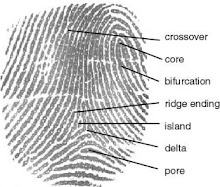I have long been interested in understanding what we remember about our past and why we remember it. But the study autobiographical memory presents many problems. Many other kinds of memory are tested in the lab but that doesn’t work so well for autobiographical "episodic" memories, which are made over time and everywhere along the way.
The 19th century English psychologist Sir Francis Galton pioneered a simple method to study autobiographical memory, a modified version of which is still used today. He decided to go fishing for memories associated with a list of common everyday words. Four times he used the same cues to try and catch his recollections. One of Galton’s findings was that it was difficult to pinpoint when the events he remembered had occurred. Another was that his brain often produced the same associations over and over again. “This shows much less variety in the mental stock of ideas than I had expected,” he wrote, “and makes us feel that the roadways of our minds are worn into very deep ruts.”
There is no universally agreed definition of autobiographical memory, but it can be conceptualized as a mental state resulting from the interplay of a set of psychological capacities—self-reflection, self-agency, self-ownership and personal temporality—that transforma memorial representation into an autobiographical personal experience.
Theorists pursuing the ontology of self immediately find themselves immersed in a host of issues about mind and body, subject and object, object and process, free will and self-awareness. Mapping our knowledge of self is very much tied up with the “story” of how what we have experienced has made us who we are, and how who we are has led us to do what we have done.

No comments:
Post a Comment